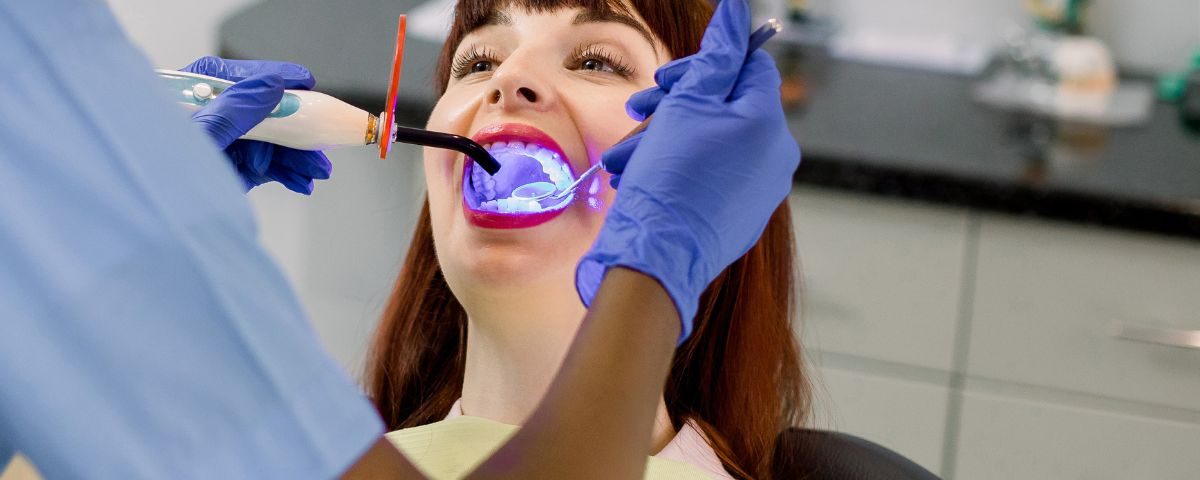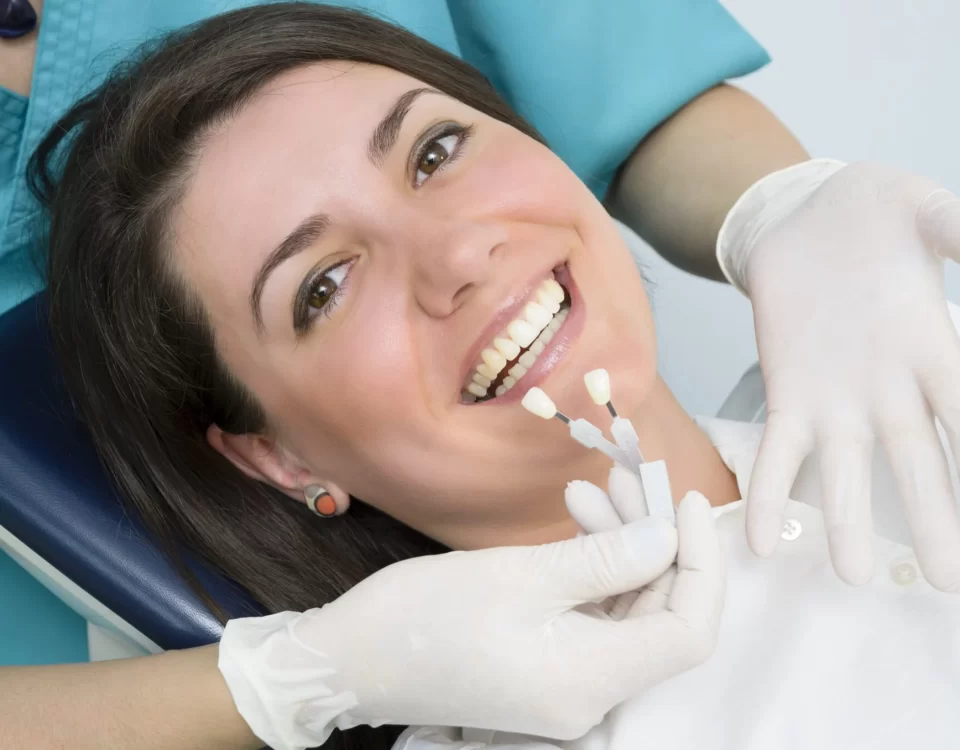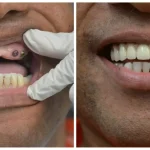
How Do You Know If You’re a Candidate for Full Mouth Reconstruction?
2025-07-16Quick Answer
Teeth whitening is safe for sensitive teeth when you consult a dentist first to rule out underlying issues. Use gentle, low-peroxide products and follow a strict schedule to protect your enamel. Professional treatments are highly recommended as they allow for customized care to minimize discomfort.
Teeth whitening can dramatically brighten your smile, but for people with sensitive teeth, the process requires extra caution to avoid discomfort and damage.
In this guide, we will explore how to safely whiten sensitive teeth, professional versus at-home options, and safe alternatives if whitening isn’t right for you.
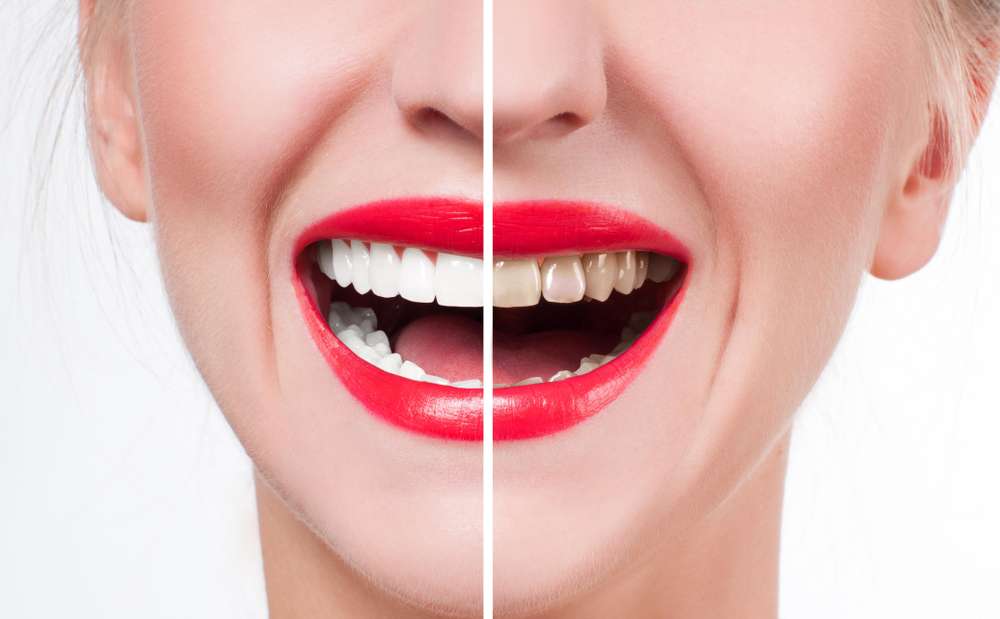
What Do You Need to Know Before Whitening Sensitive Teeth?
Consult your dentist
Sensitive teeth can be a symptom of underlying issues such as enamel erosion or cavities. By having a professional examine your mouth first, you reduce the risk of aggravating these conditions during the teeth whitening treatment.
For example, if enamel is already thin, your dentist can recommend gentler methods, preventing the occurrence of severe sensitivity or long-term damage.
Choose gentle products
Whitening gels or toothpaste with lower peroxide concentrations work gradually to remove stains without overstimulating the nerves inside your teeth.
This means you can still achieve a brighter smile while minimizing the sharp and painful sensations that often occur with stronger at-home products. Gentle formulas target surface stains safely, keeping the enamel intact and avoiding pangs of sudden sensitivity and pain.
Limit frequency
Using whitening products too often can strip minerals from your enamel and irritate the nerve endings inside the teeth, making them more reactive to temperature and pressure.
Sticking to the recommended schedule allows your teeth to recover between treatments, helping maintain their strength and reducing the likelihood of persistent discomfort.
Follow post-treatment care
After whitening, teeth can be temporarily porous and more sensitive to heat, cold, or acidity. Using desensitizing toothpaste or avoiding extreme foods immediately after treatment creates a protective buffer, allowing the enamel to re-harden and the nerves to calm.
Most dentists provide an aftercare guide for patients, helping them reduce pain and prevent the sensitivity from becoming chronic.
When to Avoid Whitening?
- During Pregnancy or Breastfeeding: Hormonal changes can make teeth and gums more sensitive. Whitening products, especially those containing peroxide, have not been fully studied for safety during pregnancy or lactation, so it is safer to postpone treatments if you are pregnant.
- Existing Dental Issues: If you have cavities, enamel erosion, gum disease, or exposed tooth roots, whitening can worsen these problems. For instance, peroxide can penetrate softened enamel or areas with decay, causing sharp pain or further damage.
- Severe Tooth Sensitivity: Individuals who experience intense discomfort from hot, cold, or sweet foods may find that whitening worsens the condition. In such cases, focusing on desensitizing treatments first is recommended.
Professional Vs In-Home Whitening
Professional Whitening
Dentists use higher-concentration whitening agents in a controlled environment, often with protective barriers to shield sensitive areas.
Treatments are customized to your enamel and oral health, which reduces the risk of irritation or long-term damage. Additionally, a dentist can monitor progress and adjust the procedure to minimize sensitivity, making it safer for people prone to tooth discomfort.
For people with moderate to severe sensitivity, seeking professional whitening services is often the safest choice.
In-Home Teeth Whitening
Over-the-counter gels, strips, or trays are convenient and cost-effective but generally contain lower concentrations of peroxide.
While safer for sensitive teeth, these methods are less customizable and may cause uneven results or mild irritation if used incorrectly. You must follow the instructions properly to ensure that there is no overuse of the product.
Alternatives to Teeth Whitening
- Professional Cleaning: Regular dental cleanings remove surface stains caused by coffee, tea, or plaque buildup. While it doesn’t change the natural color of your teeth, it restores brightness without irritating sensitive areas.
- Desensitizing Toothpaste: Toothpaste designed for sensitive teeth can gradually reduce discomfort and improve enamel health. Over time, this can make teeth appear slightly whiter.
- Cosmetic Solutions: For more noticeable whitening without using bleaching agents, options like veneers or dental bonding can cover discoloration. These treatments are performed by a dentist and avoid the irritation associated with peroxide-based products.
- Lifestyle Adjustments: Reducing intake of staining foods and beverages like coffee and quitting smoking can help prevent discoloration, making your teeth appear naturally brighter without any chemical treatments.
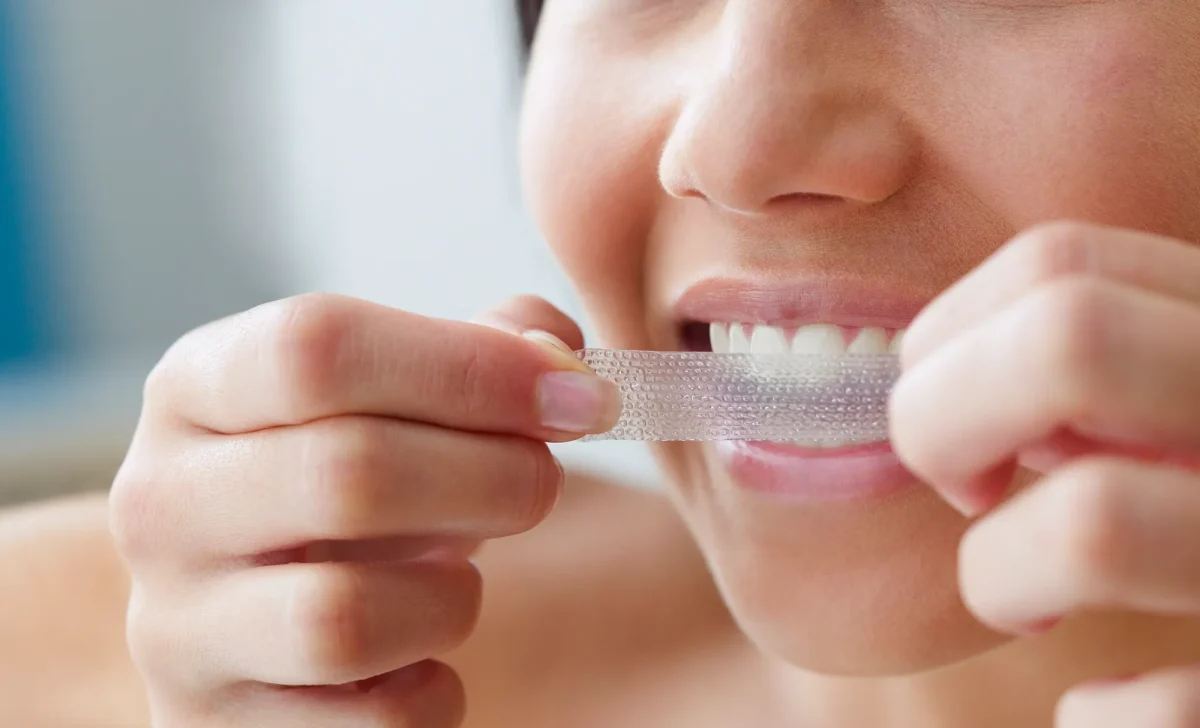
Book a Professional Teeth Whitening Session Today!
Are you looking for Teeth Whitening in Portland?
At Centerport Cosmetic & Implant Dentistry, we understand that sensitive teeth require special care when it comes to whitening. Our professional teeth whitening services are customized to your unique oral health needs.
With our expert team, high-quality whitening products, and protective techniques, you can enjoy noticeable results without the irritation or discomfort often associated with at-home kits.

